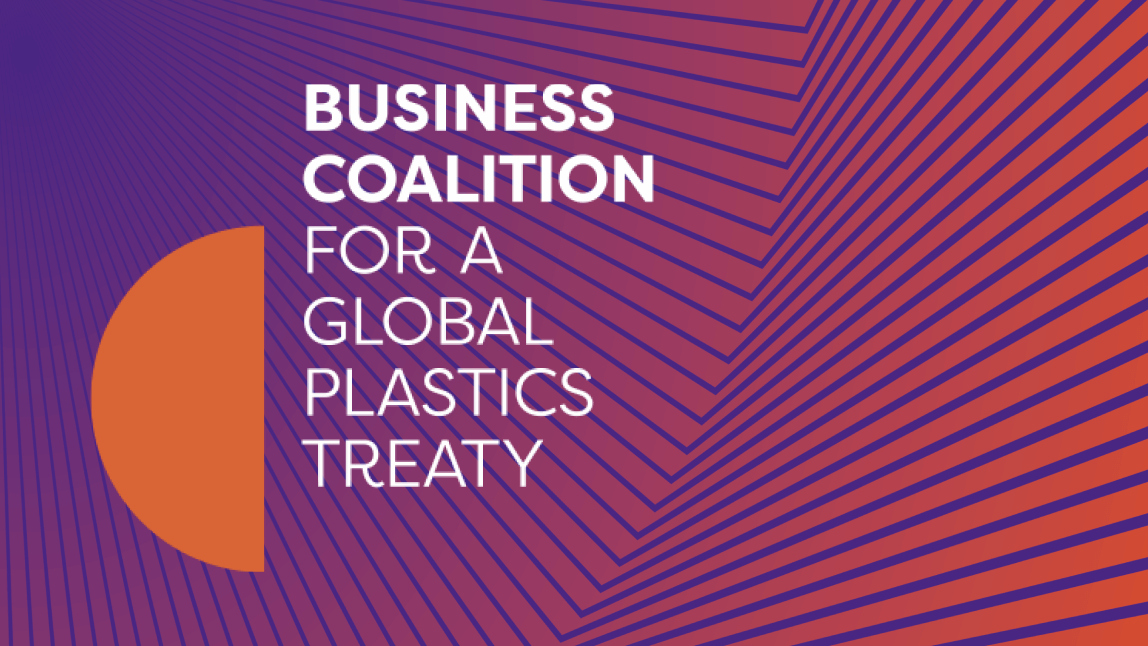Today, we published our latest white paper that sets out the Foundation’s perspective on a new UN treaty to address plastic pollution and support the transition to a circular economy for plastics.
To solve plastic waste and pollution, in a way that also helps us address climate change and biodiversity loss, we need a circular economycircular economyA systems solution framework that tackles global challenges like climate change, biodiversity loss, waste, and pollution. It is based on three principles, driven by design: eliminate waste and pollution, circulate products and materials (at their highest value), and regenerate nature. for plastic, which addresses its entire lifecycle, based on three main principles:
Eliminate all problematic and unnecessary plastic items we do not need
Innovate to ensure that the plastics we do need are reusable, recyclable or compostable
Circulate all plastics items we use to keep them in the economy and out of the environment
Through voluntary agreements like the Ellen MacArthur Foundation and UNEP’s Global Commitment, and the Ellen MacArthur Foundation’s Plastics Pact Network, we have already seen +1,000 organisations take significant steps towards a circular economy for plastic. Businesses and governments have committed to change how we produce, use, and reusereuseThe repeated use of a product or component for its intended purpose without significant modification. plastic, with concrete 2025 targets and year-on-year reporting.
However, voluntary agreements alone are not enough. Policymakers have a critical role to play in creating the right conditions and incentivising progress. A global treaty for a circular economy for plastics is the next necessary step, if we are to scale the successful voluntary agreements already in place. It's not an either / or situation - we need common, urgent action that builds on this momentum to amplify current efforts and level the playing field.
By setting out global goals and legally binding targets, together with national action plans and consistent measurement, a UN Treaty will:
harmonise policy efforts
enhance investment planning
stimulate innovation
and coordinate infrastructure development.
We call on all governments, industry, and civil society to urgently work together towards a common understanding of the main building blocks for a new UN Treaty on plastic pollution, and to agree on establishing an international negotiating committee at UNEA 5.2 in February 2022.
Already, 104 national governments have called for a UN treaty to tackle plastic pollution, while more than 2 million people have signed a public petition. Many leading businesses, and as of today, more than 20 financial institutions representing over EUR 2 trillion of assets under management, have signed a business manifesto announcing their support for a global treaty on plastic pollution. We urge others to join them in supporting a treaty that will enable circular economy solutions to scale globally.
“Achmea Investment Management strongly supports the business call for a UN treaty on plastic pollution led by WWF and the Ellen MacArthur Foundation. We need better global policy to solve the plastic pollution crisis. We sign this business manifesto as a signal to global policy makers that adequate regulation is needed to set a global and reliable regulatory level playing field. This is crucial to enable leading industries to develop and market alternatives to fossil fuel based plastics and end plastic pollution.”
- Rogier Krens, Chief Investment Officer, Achmea Investment Management
“The growing number of companies calling for a treaty on plastic pollution sends a strong signal to UN member states that industry and civil society are united in wanting to see governments act decisively on this issue. The mounting plastic pollution crisis and its costs to people and the planet can no longer be ignored: it is a global problem that cannot be solved without the world uniting around coordinated global solutions and a common plan.”
- Marco Lambertini, Director General, WWF International
“A UN treaty on plastic pollution is crucial to the creation of a circular economy for plastic, and now financial institutions too are urging governments to establish an international agreement. Setting a coherent international policy direction will support the delivery of commitments being made by leading global companies, and level the playing field for the entire industry so that all actors can play their part. A legally binding, global agreement will foster investment in infrastructure and circular economy solutions and help mitigate investment and financial risks associated with plastic pollution, including its role in climate change and biodiversity loss.”
- Andrew Morlet, CEO, Ellen MacArthur Foundation










